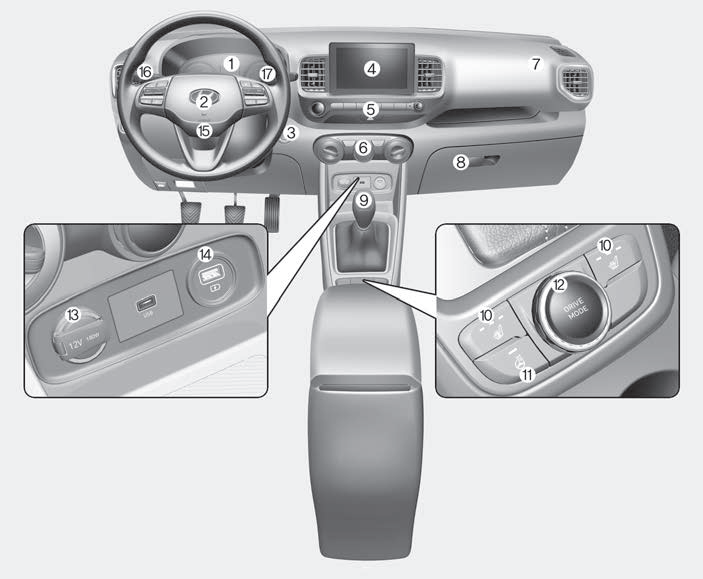Hyundai Venue: Charging System / Battery Sensor. Repair procedures
Hyundai Venue (QX) (2020-2025) Service Manual / Engine Electrical System / Charging System / Battery Sensor. Repair procedures
| Removal |
| 1. |
Disconnect the battery negative (-) cable.
|
| 2. |
Disconnect the battery sensor connector (A).
|
| 3. |
Remove the battery negative (-) cable after removing the bolt (B).
|
| Installation |
| 1. |
Install in the reverse order of removal.
|
 Battery Sensor. Description and operation
Battery Sensor. Description and operation
Description
Vehicles have many control units that use more electricity. These units control
their own system based on information from diverse sensors...
Other information:
Hyundai Venue (QX) (2020-2025) Service Manual: Repair procedures
Removal 1. Disconnect the battery nagative terminal. 2. Remove the engine cover. 3. Disconnect the ignition coil connectors (A). • When removing the ignition coil connector, pull the lock pin (A) and push the clip (B)...
Hyundai Venue (QX) (2020-2025) Owners Manual: Theft-Alarm System
This system helps to protect your vehicle and valuables. The horn will sound and the hazard warning lights will blink continuously if any of the following occur: -- A door is opened without using the remote key or smart key. -- The liftgate is opened without using the remote key or smart key...
Categories
- Manuals Home
- 1st Generation Venue Owners Manual
- 1st Generation Venue Service Manual
- Vehicle Identification Number (vin), Vehicle Certification Label
- Rear Combination Light Bulb Replacement
- Shift-lock system, Shift-lock release, Parking
- New on site
- Most important about car
Instrument Panel Overview

1. Instrument cluster
2. Horn
3. Key ignition switch/ Engine Start/Stop button
4. Infotainment system
5. Hazard warning flasher switch
Copyright © 2025 www.hvenueqx.com





